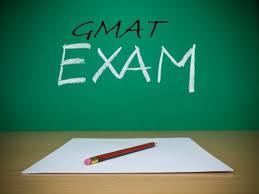The Graduate Management Admission Test is a popular computer adaptive test (CAT) which determines a student’s analytical, writing, quantitative, verbal, and reading skills as well as set standard in entering in graduate management program, such as an MBA. It offers 5900 programs by 2100 universities. It follows standardized structure in more than 112 countries due to its demands in new era of management.
determines a student’s analytical, writing, quantitative, verbal, and reading skills as well as set standard in entering in graduate management program, such as an MBA. It offers 5900 programs by 2100 universities. It follows standardized structure in more than 112 countries due to its demands in new era of management.
The GMAT has basically four main parts: Analytical Writing; Integrated Reasoning; Verbal Reasoning; Quantitative reasoning.
· Analytical Writing: It comprise of Argument task in which the candidate is required to analyse the logic for given reason and recommend his views. The time limit is 30 minutes for this essay. The scoring is between 0-6.
· Integrated Reasoning: It has 12 questions which are need to be solved in 30 minutes. The score is scale of 1-8.The questions have interpretation of tabular, graphical and written information picked from variety of sources. Each question is independent and has many parts, but one prompt may be used for more than one question available in test. An on-screen calculator help can also be taken.
· Quantitative Section: The Quantitative section consist of two types of multiple choice questions: a) data sufficiency and b) problem solving. You are required to solve are 37 questions in 75 minutes. The level of questions is of 11th Grade student. Here No calculators are allowed to candidate.
· Verbal Reasoning: The Verbal Reasoning section includes three types of question: critical reasoning; reading comprehension; sentence correction. It has multiple-choice need to be completed in 41 questions to be completed in 75 minutes.
How to start with the preparation?
Step 1: Firstly, You should familiarize yourself with the structure and principles of GMAT.
Step 2: Take a practice test to find out how far you are away from target -test are available on GMAT Prep tests/ adaptive test from Princeton, Kaplan, then use GMAT Score Estimator/Calculator to find your real GMAT equivalent.
Step 3: Set what GMAT score you actually need. For Example You need 700 for Top 10 schools, 680 for Top 20, and 650 for Top 50 to pass - meaning your score should not be an issue and you will need just 50 points higher to stand out. Most people are capable to improve between 50 and 150 points –then you can evaluate your scale of scoring.
Step 4: Identify your weaknesses - take a look at your practice test score and note the raw score distribution and prepare an error log for future preparation use.
Step 5: Design a study plan for yourself- finally! You need to build up your tool it and get some ammunition for the GMAT. You will need books or a course to refresh/learn fundamentals before test.
Step 6: Avoid typical GMAT mistakes and pitfalls. This is most common practice - jumping into questions and giving tests unprepared and expecting miracles as results. GMAT has of several layers and it is very important to master each one before switching to next- it is like Maslow’s hierarchy of needs. It states that you cannot satisfy your social needs until you take care of basic needs such as safety and food. The same is here, if you clear with the basic principles GMAT Test (such as grammar, arithmetic, etc.) it is not require to solve hundreds of questions or taking multiple GMAT tests. But if you are not a native of English language, you must need to get comfortable with reading long passages.
Step 7: Commit to excellence and doing the best job possible. Create measures to improve your score –You can make your own notes. Do not move to the next chapter until you achieve 90% of the questions right. You can shift your schedule to wake up at 5 AM and study till 9 before work.
How long should you prepare for GMAT exam?The study plan must be of maximum 3 months, and it can be 10-15 hours per week (2 hrs. on working day and 5 hours on the weekend). It will be about 120 - 180 hours, which includes reading some books and solving numerical.
But when you decide for 9 months instead of 3, you may think to triple your improvement? No, actually, it will be MUCH worse if you spread out your preparation over a time period .Long study are demotivating, can’t be kept fresh. You may start forgetting material much faster than you can learn it. It is considerable to spend 3-4 months that would boost you to crack Exam.
Monthly study plan for GMAT
MONTH 1
· Start with Math section first and focus just on math alone. At least give 4 weeks on it.
· Start using an Error Log to keep track on your mistakes. Optional Step: If you are feeling it to be heavy and you consider in really weak in Math – prefer math foundation book .Try to teach someone else to increase your skills.
· Once you are done with the math section - start taking the math practice test. Evaluate results and decide that if you need to give more time or not .This decision will help to target GMAT score. But if you are targeting 600's and 700's, do not move ahead with minimal score. Don’t skip your mistakes – sooner or later they will catch up; the better way is to address them right there and then and make sure you never conduct them again. If you are comfortable with Quant then solve hard questions and were designed as practice for high-level math scorers.
Month 2
- You may start working on the Verbal section. You can start with any question type, but Sentence Correction should be first choose as it is very straightforward Sentence Correction. Optional Step: In case you are not native speaker, you will need a good grammar book that emphases on concepts for non-native English candidate. The best thing about it is Free of cost. You may also consider books of Kaplan Verbal Foundations. If you are short on time and can’t cover the MGMAT’s SC book, you can use the Kaplan Verbal Workbook - it includes good strategies. Reading Comprehension is toughest area to conquer.
- You should develop reading habit for the time being. I felt that analysing books can be big contributor to my SC and RC abilities. It should be read them during your low productivity hours (at night, during transit, etc.).
- You can use Timer and you have not use it yet, you should – the timer will help to save time and even of all your practice will enhance more.
Month 3
- This month should be distribute time on 2 things: taking tests (polishing stamina) and revising your error (understand why you keep making mistakes and how to deal with that). Start previewing your Error log earlier than this .
- Schedule test in case you have not done so already.Start giving full length tests (including AWA and IR) - this is very important for your test stamina. Plan to spend a Saturday on this and also have a subsequent test review.
- Create a "black list of questions" that you are still struggling with and find a way out by solving minimal mental effort.
Last but not least, we should not give up positive attitude before giving any exam. GMAT exam are real opportunity for one to know about his Interpretation skills and analytical skills. High score in GMAT help you to get best institute for further studies and a great career ahead.